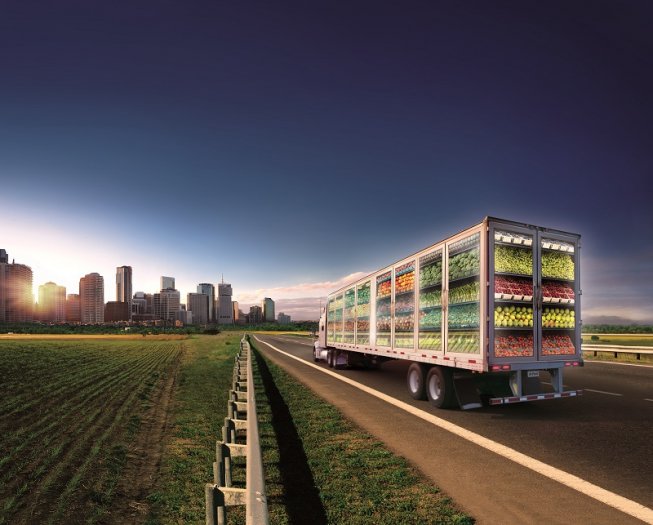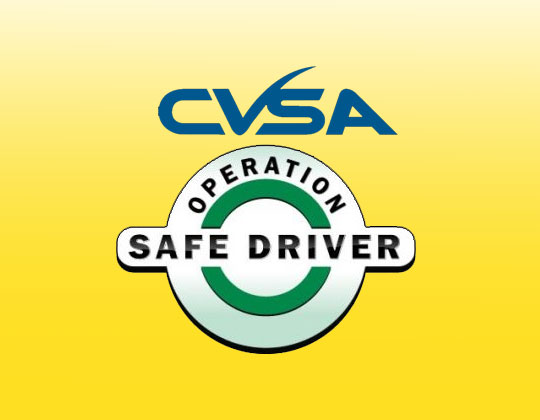Food Safety
As the transportation and delivery of refrigerated goods face increased scrutiny due to recent food safety concerns, adherence to stringent guidelines is crucial. Read the latest Safety Bulletin to polish up on food safety practices. Read the full Safety Bulletin here and subscribe to receive all future Safety Bulletins straight to your inbox.
A Listeria contamination prompted a recall of over 7 million pounds of deli meat and poultry products. Each year, 48 million people in the U.S. get sick from compromised food products. The Food Safety Modernization Act will enforce a traceability compliance rule starting January 20, 2026. At that time, each link on the “Cold Chain” of safe food transportation must track certain high-risk food ingredients such as fresh fruits and vegetables, eggs, nut butters, cheeses, and seafood products.
Critical Requirements of Food Safety
- Vehicles and transportation equipment: Vehicles and transportation equipment used for food must be designed and maintained to ensure the safety of the food being transported. This includes making sure that the vehicles and equipment are suitable for their intended use, easy to clean, and capable of maintaining the necessary temperatures for safe food transport.

- Transportation operations: Several measures must be taken to ensure food safety during transportation. These include effectively controlling temperatures, preventing ready-to-eat food from coming into contact with raw food and protecting food from contamination by non-food items in the same or previous loads. Additionally, it’s crucial to prevent cross-contact, such as accidentally incorporating a food allergen.
- Training: Carrier personnel must be trained in sanitary transportation practices and documented. This training is required when the carrier and shipper agree that the carrier is responsible for maintaining sanitary conditions during transport.
- Records: Carriers must also maintain records of written procedures, agreements, and training. The retention time for these records depends on the record type and when the covered activity occurred, but it does not exceed 12 months.
Safely Delivering Your Refrigerated Goods With Consistent Reliability
The company loading the refrigerated vehicle with temperature-controlled cargo consisting of human or animal food is responsible for ensuring the vehicles are clean before each loading. This is a limited list of guidelines, but it may be helpful.
Daily Best Practices to Mitigate Food-Borne Pathogens
- Select an area for cleaning vehicles free from environmental concerns
- Open the doors of the refrigerated compartment and remove any items that should not get wet. Sweep out debris or blow out compartments with an air hose.
- Carefully clear any debris (paper, plastic wrap) from the compartment and inspect the evaporator housing to remove any debris.
Recommended Practices When Cleaning Refrigerated Compartments
- Be sure to remove debris before mixing water.
- Prepare a bucket of food-grade detergent by mixing.
- Wipe down interior surfaces with a clean cloth and a detergent-water mixture.
- Use hose and water to spray inside compartment. Make sure to spray the ceiling and walls as well as the floor. Give special attention to cracks, crevices, and areas near door openings and pockets. All cleaning steps should follow a top-down or “top first, bottom last” approach.
- Scrub the inside compartment with clean cloths and/or brushes using detergent.
- Rinse inside the compartment. Make sure to spray the ceiling, walls and floor. Give special attention to cracks, crevices, and areas near door openings.
- Allow the inside of the compartment to air dry.
- Shut the doors and take other necessary steps to keep your vehicle clean. Always follow the Daily Best Practices above and ensure no debris is left in the compartment at the end of the day.
- When dirty, wash the outside of truck.
Loading Procedure Checklist
- Pre-cool the compartment before loading.
- Initiate a manual defrost during pre-cool.
- Be sure the unit is off before opening doors to load.
- The inside of the truck should be clean, and the floor should be free of plastic wrap and debris.
- Load the product at the correct temperature and in the correct manner.
- Do not load the product in front of the evaporator air outlets.
- Leave a minimum of 9 inches between the top of the load and the ceiling.
- Do not block the evaporator’s air return.
- Close the doors when loaded.
- Start the unit and verify the correct temperature setting.
Airflow in and around your refrigerated cargo is critical to avoid devastating illness due to inadequate cooling. Just like your refrigerator at home, if loaded improperly and airflow is blocked, you risk spoiling food.
Download the Idealease Quick- Guide to Proper Product Loading
Scan this QR code for a quick guide to properly load refrigerated products to ensure the safety of the food delivered.

CVSA’s Brake Safety Week Scheduled for Aug. 25-31

Brake Safety Week is scheduled for Aug. 25-31 this year. It involves inspections and enforcement of commercial motor vehicles, focusing on brake systems. Inspectors will concentrate on brake linings and pads, and vehicles found in violation will be removed from the road. Some jurisdictions will use performance-based brake testers during Brake Safety Week.
Registration Now Open for the 2024 Idealease/NPTC Safety Seminars!
Idealease and the National Private Truck Council (NPTC) are excited to announce the opening of registration for the 2024 Safety Seminars. These one-day seminars will focus on crucial topics such as safety data analysis, basic safety and compliance, regulation changes, and CSA.
Who Can Attend: These seminars are open to all Idealease customers, potential customers, and NPTC members, and are provided at no charge.
Seminar Highlights:
- Gain insights into safety practices and compliance regulations.
- Learn about the latest advancements in safety technology.
- Understand CSA (Compliance, Safety, Accountability) and its impact on your operations.
Why Attend: Whether you're a novice or an experienced transportation professional, these seminars offer valuable information to enhance your safety practices.
Registration Details: Seminars are currently available for registration, with venues secured for the following locations:
Fall 2024
- 10/1/24: Eugene, OR
- 10/1/24:St. Louis, MO
- 10/3/24: San Leandro, CA
- 10/9/24: Baltimore, MD
- 10/16/24: Atlanta, GA
- 10/17/24: Nashville, TN
- 10/17/24: Charleston, WV
- 10/28/24: Stockton, CA
Note: If you haven't seen a seminar in your area listed yet, don't worry. Registration availability will be updated weekly as venues are secured. Keep an eye on this bulletin for the latest updates. To register for an upcoming seminar in 2024, click on the following link: Safety Seminar Registration. Don't miss out on this opportunity to enhance your safety knowledge and practices in 2024. Register today!
*The Idealease Safety Bulletin is provided for Idealease locations and their customers and is not to be construed as a complete or exhaustive source of compliance or safety information. The Idealease Safety Bulletin is advisory in nature and does not warrant, guarantee, or otherwise certify compliance with laws, regulations, requirements, or guidelines of any local, state, or Federal agency and/or governing body, or industry standard.
